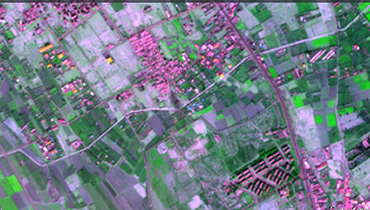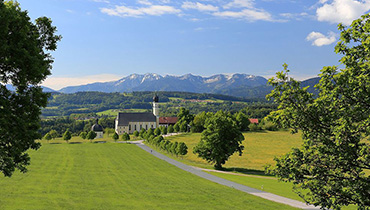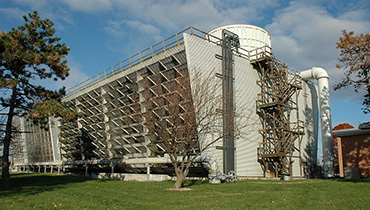2017- Rural prosperity for development: understandings, determinants and strategies derived from case studies in seven countries
| Doctorando: | María Rivera Méndez |
| Nacionalidad: | España |
| Universidad: | Universidad Politécnica de Madrid |
| Facultad/Escuela: | E.T.S.I. Agrónomos y E.T.S.I. Montes y E.T.S.I. Montes , Forestales y del Medio Natural |
| Año: | 2017 |
| Calificación: | Sobresaliente cum laude |
| Director: | José María Díaz puente |
| Enlace: | Texto completo |
ABSTRACT
This Ph.D. Thesis has been developed within the framework of a European project called “Rethinkingthe links between farm modernisation, rural development and resilience in a world of increasing demands and finite resources”. It is a transdisciplinary research project supported by the European Commission and funding bodies in 14 countries under the umbrella of FP7 and the RURAGRI ERA-NET. The project has examined 4 main themes: resilience, prosperity, governance and knowledge and learning. The chapters that comprise this Ph.D. Thesis and that are summarized below are the result of the analysis of one of these themes: rural prosperity. The overall objective of the Thesis is to comprehend what is rural prosperity and what does it imply in terms of strategies and actions to reach it. For this, a global idea around the theoretical aspects of rural prosperity was obtained, as well as the specific meaning and characteristics that it acquires in rural environments taking into account the endogenous visions and opinions of the local stakeholders.
The concept of prosperity is a target area for the 2030 Sustainable Development Goals (SDG) and as such is present in the discourse and agenda of nations all around the world. Both the definition and quantification of the different dimensions of prosperity is currently a much-discussed issue and a living reality. The concept of rural prosperity has in the past mainly been associated with the modernization of agriculture and the economic benefits that appeared to originate from it. The common assumption was that rationalization in farming, scale enlargement, specialization and mechanization contribute to higher farm incomes and, eventually, to rural prosperity. Today we know that this simple logic is not correct in several respects: the increasing capital intensity in farming tends to be connected with debt and (path) dependency, and farm incomes seem to be under continuous economic pressure. Regionally, farm structural change and the modernization of a few farms have not always contributed to prosperous rural areas and the concentration of production in some regions and on some farms, can be directly linked with the marginalization of other regions and farms.
Chapter 1 presents a qualitative empirically grounded analysis of these questions based on in-depth case studies in seven countries (Spain, Italy, Lithuania, Latvia, Israel, Germany and Denmark) that represent a broad spectrum of socio-economic and agricultural contexts. The study is based on a total of 369 interviews and 11 focus groups. During this analysis, it was found that many rural people, including many farm households, search for models were people thrive, find well-being and live in sustainable ways. New understandings of rural prosperity as well as the determinants, strategies and mechanisms supporting it are examined. Personal well-being, maintaining vibrant rural areas, sense of community, knowledge and the environment amongst others are key according to stakeholders to reach prosperous rural areas, for which, enabling factors such as accommodating policies that aim at finding the balance between the old and the new, R&D and innovation for management, cooperation or trust are needed. The fact that there are many valid alternative development trajectories was also observed.
Building on this, chapter 2 analyses more in depth the Spanish case study, which obtained its data from 38 face to face interviews. The focus is mainly on the strategies used by the cooperative’s farming partners to achieve success without following the traditional conventions of economic growth and farm-efficiency. Experience lessons in this chapter demonstrate that the “technical-economic” approach of rural prosperity is not sufficient and results emphasize the important role of individuals’ behaviour as well as the contexts in which they are involved. Chapter 3 develops from the results obtained in chapters 1 and 2, where four social capital elements emerge as key to achieve prosperity and sustainable development in rural areas. The objective was therefore to explore the importance of social capital in rural development. In this chapter, data from the 7 Rethink case studies is again used for the analysis. The chapter explores how social capital materialises in the context of rural areas and what nuances it acquires in the different rural environments. The case studies are used to better understand and to illustrate the different expressions of social capital in different situations. Within the broad notion of social capital, we pay particular attention to trust, cooperation, sense of community and culture and tradition. All these different dimensions have shown to play a critical role in rural areas as they affect how people relate to each other, organise themselves and interact for development.
Chapter 4 summarizes the main conclusions derived from the Doctoral Thesis and describes the key elements and strategies to be taken into account for the analysis of prosperity in rural contexts. The different results are presented through illustrative figures in which the main conclusions of each chapter and of the thesis in general are represented. Firstly, the view that rural prosperity is obtained only as a result of large-scale agriculture, mechanization and specialization is discussed, and the limitations of this approach are presented by emphasizing a number of aspects that are not clearly reflected in GDP, but that according to this research play a very important role in rural prosperity. This new vision is reflected in the strategies implemented by the farmers that are part of this research. These strategies are also described in this chapter. In addition, it argues that these strategies should be strengthened and supported by policies that: embrace and support different development models, provide a space to grow and to experience, and recognize the different roles farmers play in rural prosperity. The conclusions also highlight the importance of social capital, in its different elements, for the prosperity and development of rural areas. Finally, the relationship between the different learnings on how to understand prosperity in rural territories and the different elements and strategies that define and promote it are established in order to institute the basis on which to build models and indicators that allow the development and measurement of prosperity in rural areas.












